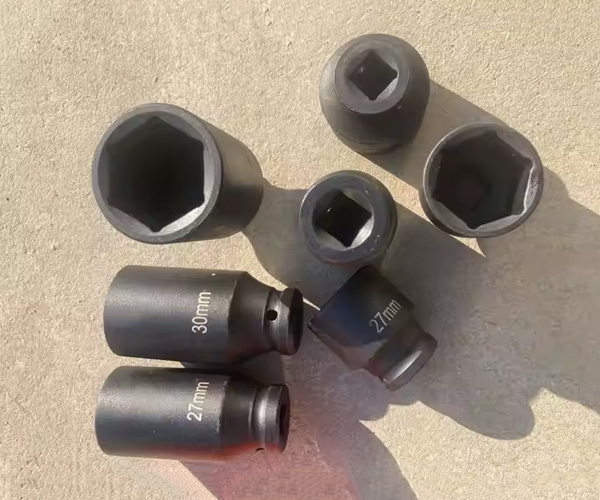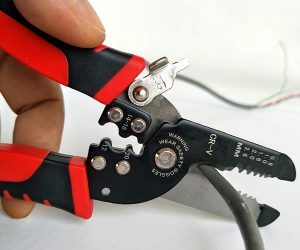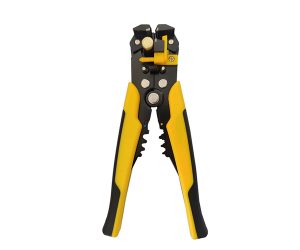Introduction
Are you struggling to find the right socket for your air impact wrench? You’re not alone—many people wonder if any correctly sized socket can be used on an air impact wrench. The answer isn’t as simple as it seems, and there are several factors at play when selecting a socket for your impact wrench. Whether you’re a professional mechanic or a DIY enthusiast, choosing the right socket is crucial for both performance and safety. In this article, we will walk you through everything you need to know, helping you make informed decisions and avoid costly mistakes.
1. What Is an Air Impact Wrench?
An air impact wrench is a powerful tool commonly used in automotive repair, construction, and heavy-duty work where high torque is needed. Powered by compressed air, it delivers rapid bursts of energy that help break loose tight fasteners or tighten them quickly. Air impact wrenches are highly efficient, saving both time and effort in tasks like tire changes, engine repairs, and assembly line work. The most common use of an air impact wrench is for loosening lug nuts on vehicles, but it’s also vital for removing or installing bolts in industrial machinery, building structures, and even home improvement projects.
The mechanism behind an air impact wrench involves the conversion of compressed air into rotational force. When the wrench is triggered, the air is released, which activates a hammer mechanism inside the tool. This hammer strikes a drive shaft that, in turn, spins the socket. The result is a high-torque, high-speed motion that can handle even the most stubborn fasteners. While this tool is incredibly effective, it’s crucial to pair it with the right accessories to ensure smooth performance. One of the most important components to consider is the socket, as it directly impacts the tool’s overall performance and longevity.
2. What Does “Correctly Sized” Mean for a Socket?
When we talk about a “correctly sized” socket, we’re referring to the socket’s internal drive and its compatibility with the air impact wrench’s output. The drive size is the part of the socket that fits onto the tool’s anvil or drive shaft. Standard socket sizes come in various formats, such as 1/4″, 3/8″, 1/2″, 3/4″, and 1″, with each corresponding to a specific drive size of the air impact wrench. Additionally, the outer diameter of the socket must fit the fastener properly without any wiggle room, as an improper fit can cause slippage or damage to the fastener.
Understanding socket sizes is essential because an incorrect size could lead to tool inefficiency, compromised safety, and even damage to your wrench or fastener. For instance, a socket that is too large for the wrench may not hold properly, while a socket that is too small may result in excessive stress on the tool. This is why it is crucial to always check that both the drive size and socket dimensions align before use.
3. Can Any Correctly Sized Socket Be Used on an Air Impact Wrench?
The answer is no—just because a socket is the correct size, that doesn’t mean it’s suitable for use with an air impact wrench. There are several factors to consider beyond size, including the material, design, and strength of the socket. While a standard socket might physically fit onto the tool’s drive, it might not be designed to withstand the high torque and force generated by the air impact wrench.
Here’s the deal: Impact wrenches generate significantly more force than manual tools, and using a socket that isn’t designed to handle that torque can lead to breakage or damage. Impact sockets are built differently from regular sockets to withstand the intense forces that come with impact wrench usage. They are made from stronger, more durable materials and have thicker walls to prevent cracking under pressure.
4. Understanding the Impact Wrench Socket Materials
Air impact wrenches exert substantial force on the sockets, which means the material of the socket is critically important. The most commonly used materials for impact sockets are chrome-molybdenum (Cr-Mo) and chrome vanadium (Cr-V), both of which are known for their strength and durability. These materials are designed to withstand the intense stresses placed on them by the high-torque impact wrench.
The reason Cr-Mo and Cr-V are preferred materials is their ability to absorb and distribute the high energy produced during the wrench’s operation, reducing the risk of breakage. Chrome-molybdenum sockets, in particular, are known for their superior strength and ability to handle heavy-duty applications. They also tend to resist wear and corrosion better than other materials. On the other hand, chrome vanadium sockets are highly durable and provide a good balance between strength and cost, making them a popular choice for both professionals and DIY enthusiasts.
You might be wondering: Why can’t I use a regular socket with my impact wrench? The issue lies in the fact that regular sockets are made from softer metals, often coated in chrome, which makes them more susceptible to cracking or breaking under the intense impact force. Therefore, it’s always important to use impact-rated sockets with an air impact wrench for both safety and performance.
5. Differences Between Impact and Non-Impact Sockets
At first glance, an impact socket might seem similar to a regular socket, but there are crucial differences that determine which one is appropriate for use with an air impact wrench. The most notable difference is the wall thickness. Impact sockets have thicker walls compared to standard sockets, which helps them withstand the constant hammering forces created by impact wrenches. These thicker walls also help prevent the socket from warping or cracking under pressure.
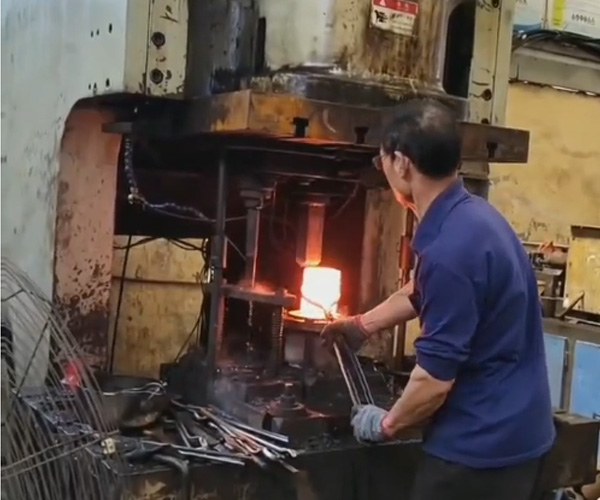
Impact sockets also have a different internal drive design. Unlike regular sockets, which have a smooth drive connection, impact sockets often feature a slightly rounder drive to ensure a secure fit and absorb the shock of the impact. Additionally, many impact sockets are coated with a protective finish, such as black oxide or phosphate, which enhances their corrosion resistance and overall lifespan.
Here’s the kicker: Using non-impact sockets with an impact wrench can lead to safety issues. Non-impact sockets are not built to handle the extreme torque produced by impact wrenches, which can cause them to break or slip, leading to accidents or damage to the tool or fastener.
6. Why Using the Wrong Socket Can Cause Problems
Using the wrong socket with an air impact wrench can lead to several problems, ranging from minor inconveniences to serious safety hazards. When you use a socket that is not designed to withstand the forces of an impact wrench, you risk damaging both the socket and the fastener. A socket that is too thin or made from inferior material may crack, bend, or strip, which can cause the fastener to become stuck, making your task more difficult than it needs to be.
Moreover, an improper fit between the socket and the wrench’s anvil can result in poor torque delivery. This means that the wrench may not be able to generate enough force to properly tighten or loosen the fastener, leading to ineffective results. In extreme cases, this could damage the tool’s internal components, leading to costly repairs.
7. How Does Torque Affect Socket Selection?
One of the primary factors that affect socket selection for air impact wrenches is torque. Air impact wrenches are capable of delivering varying amounts of torque, depending on the model and application. The torque rating of the wrench should match the strength of the socket to avoid any damage during use.
Basically, the higher the torque rating of the air impact wrench, the stronger the socket needs to be. If you’re working with heavy-duty equipment or fasteners, you’ll need a socket that is capable of handling high levels of force without breaking. The best way to ensure you’re using the right socket for the job is by matching the socket’s strength with the expected torque. For instance, if you’re using a wrench rated for 600 ft-lbs of torque, you need a socket made of durable material, such as chrome-molybdenum, that can handle this level of pressure.
8. What Happens if You Use the Wrong Size Socket on an Air Impact Wrench?
Using the wrong size socket can lead to a range of problems, some of which can be dangerous. Here’s what might happen: If the socket is too small, it can cause it to slip off the fastener, potentially leading to stripped nuts or bolts, which can be difficult to remove. This can also damage both the socket and the fastener, making future use impossible. On the other hand, if the socket is too large, it may not grip the fastener tightly enough, which could lead to inefficient work and a lack of control.
An improperly sized socket can also affect the performance of the air impact wrench. The wrench may not be able to deliver maximum torque if the socket is not the right size, leading to wasted energy and poor results. In severe cases, using the wrong socket size can damage the internal components of the air impact wrench, requiring costly repairs or replacements.
9. How to Choose the Right Socket for Your Air Impact Wrench
Choosing the right socket for your air impact wrench may seem simple, but there are several considerations to ensure you’re using the best option for your specific task. First and foremost, you need to select the correct drive size. If your wrench has a 1/2-inch drive, ensure you’re using a 1/2-inch socket. Next, consider the socket’s material. As mentioned earlier, impact sockets made from chrome-molybdenum or chrome vanadium are the best choices for high-torque work.
Here’s the scoop: Beyond size and material, think about the shape of the socket. If you’re working with a fastener that has a deep recess, a deep socket will provide better grip and coverage. For more shallow fasteners, a standard or shallow socket may suffice. Always match your socket to the task at hand for optimal results.
10. The Importance of Socket Extensions and Adapters
Socket extensions and adapters can be incredibly useful when working with an air impact wrench. Extensions allow you to reach fasteners that are in deep or tight spaces, while adapters let you use sockets with different drive sizes. Both tools are critical when you need flexibility in your work, and they can prevent the need for purchasing multiple wrenches.
What’s important to note, however, is that not all extensions and adapters are designed to withstand the forces of an impact wrench. When choosing an extension or adapter, make sure it is rated for use with an impact tool. Additionally, ensure that the extension or adapter is properly sized to fit both the socket and the wrench, as an ill-fitting extension can cause damage or lead to performance issues.
11. Are There Any Universal Impact Sockets?
Universal impact sockets are designed to work with a variety of fasteners, regardless of size. While these sockets can be incredibly convenient for certain tasks, they come with some trade-offs. Universal sockets often have a more flexible design, which may make them less durable than traditional impact sockets. This flexibility allows them to fit different shapes of fasteners, but it also means they are more prone to wear and tear.
The big question is: Are they worth using? If you’re working in situations where you need versatility and don’t want to carry multiple different socket sizes, universal sockets might be the solution. However, for high-torque applications or tasks that require maximum durability, standard impact sockets should be your go-to.
12. What’s the Best Way to Maintain Impact Sockets?
To ensure your impact sockets last for as long as possible, proper maintenance is key. First, always clean your sockets after use. Impact sockets can accumulate dirt, grease, and debris, which can affect their performance. A quick clean with a wire brush or degreaser will keep them in good working order.
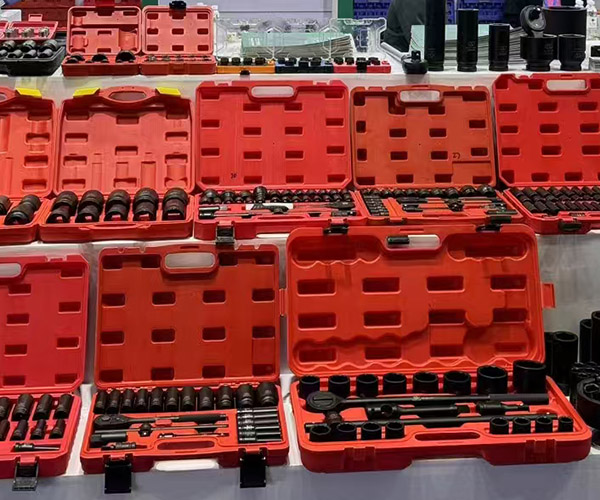
Here’s a tip: Always store your sockets in a dry, clean area to prevent rust and corrosion. This is particularly important if you’re using chrome-molybdenum or chrome vanadium sockets, as moisture can cause these materials to degrade over time. Regular inspections of your sockets are also important. If you notice any cracks or signs of wear, replace them immediately to avoid potential failure.
13. Popular Brands and Their Impact Sockets
There are several reputable brands known for producing high-quality impact sockets. Brands like Snap-on, DeWalt, Craftsman, and Milwaukee are well-regarded for their durability, performance, and variety. Why do these brands stand out? These manufacturers use premium materials like chrome-molybdenum and chrome vanadium, ensuring their sockets can handle the rigors of heavy-duty use.
When choosing a brand, it’s important to consider factors like warranty, customer service, and the availability of specific sizes or features. Some brands may offer lifetime warranties on their impact sockets, providing peace of mind that the tools will last and perform well under pressure.
14. Frequently Asked Questions (FAQs)
- Can I Use a Deep Socket with an Impact Wrench?
- Yes, deep sockets are compatible with impact wrenches, especially when dealing with deep-seated fasteners. Just ensure the socket is made for impact use.
- How Can I Prevent My Sockets from Getting Damaged?
- Regular cleaning, proper storage, and avoiding misuse are key steps to keeping your impact sockets in good condition.
- Can I Use Chrome Sockets on an Impact Wrench?
- No, chrome sockets are not recommended for use with impact wrenches due to their lack of durability under high torque.
- What Should I Do if My Socket Won’t Fit the Impact Wrench?
- If the socket is too loose or tight, check for proper drive size compatibility. You may also need an adapter or extension to get a better fit.
- How Do I Know if My Socket is Impact-Ready?
- Look for the designation “impact” or “Cr-Mo” on the socket. These materials and designs are built for high-torque applications.
15. Conclusion: The Final Word on Air Impact Wrenches and Sockets
In conclusion, selecting the right socket for your air impact wrench is not just about size—it’s about choosing the right material, design, and strength to handle the force generated by the tool. By understanding the differences between impact and non-impact sockets, as well as the importance of correct size and quality materials, you can extend the lifespan of your tools and ensure effective, safe use.
Always choose impact sockets that are designed to withstand the rigors of high-torque work. This will not only keep you safe but also save you money in the long run. If you’re ever in doubt, stick with trusted brands and always check your socket and wrench compatibility before use.
If you’re looking for high-quality, durable handtools, car repair tools, DIY tools, or woodworking tools that can handle even the toughest jobs, KOLARWIN TOOLS has you covered. With our wide selection of impact sockets and custom OEM services, we ensure your tools deliver the reliability and precision you need for your work.
Don’t settle for less! Contact KOLARWIN TOOLS today to explore our range of professional-grade tools and find the perfect socket for your air impact wrench. Whether you’re a factory, wholesaler, or distributor, we are here to provide you with top-quality products and excellent service. Let us help you achieve the perfect fit and performance for your projects!
Get in touch with KOLARWIN TOOLS now to place your order or inquire about our custom solutions. We’re committed to quality, and your satisfaction is our priority.

